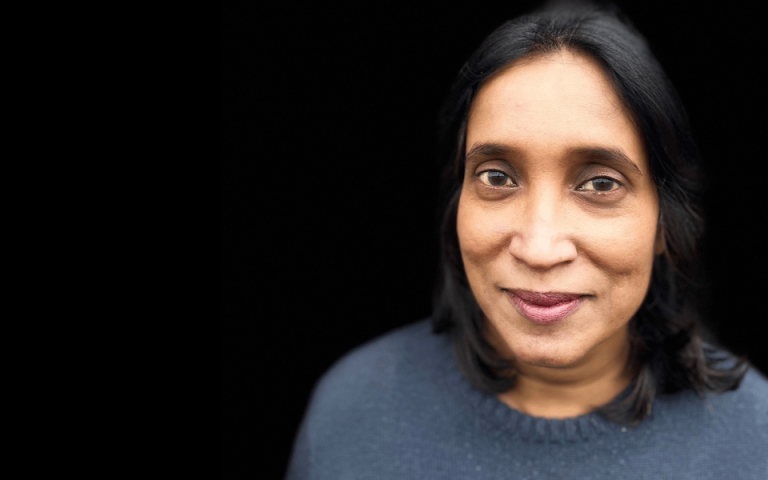Dr Rozana Himaz
Dr Rozana Himaz is an Associate Professor in Humanitarian Economics at the UCL Institute for Risk and Disaster Reduction (IRDR).

2 January 2024
When did you take up this position? What was your position beforehand?
I joined UCL in 2021. Before this I was a Lecturer in Economics and Researcher at Oxford University and Senior Lecturer in Economics at Oxford Brookes University. I’ve also been a Tutor and Researcher at the University of Cambridge where I read for my PhD in Economics.
Before I came to the UK I worked as a Senior Research Economist at the Institute of Policy Studies in Sri Lanka. This was a job that involved working directly with policy makers and international organisations such as the World Bank and International Labour Organisations.
My undergraduate degree was from the University of Sydney in Australia where I read for an Economics major and Computer Science minor. I was also an Economics Tutor in my honours year at Sydney. So, I’ve worked in six universities and three continents so far!
Tell us about your work at UCL - how do you spend your days, and what makes your role different to similar positions elsewhere?
I have been the Chair of Research at IRDR since 2021 and it has been one of the most interesting and challenging roles I’ve held. The IRDR has nearly tripled in size since I joined and we have experts passionate about risk and disaster reduction coming from a range of disciplinary backgrounds: from anthropology, history to engineering and computer science.
One of the aspects I enjoy most in this role is to facilitate research that is truly interdisciplinary and innovative. This involves organising fortnightly lunchtime forums, supporting the organisation of the Research Spring Academy, the annual conference, and leading the development of the Department’s research strategy.
On the teaching side of things, I lead a module on Microeconomics for humanitarian contexts. Again, as interesting as it is challenging because humanitarian contexts are different to the ‘business as usual’ context that microeconomics textbooks focus on. It is an under-researched area, so the students and I help one another in developing new understandings in humanitarian economics.
What are some of your favourite things about working at UCL? How have you found it different to previous jobs?
The openness to collaboration at UCL is amazing. It’s also such a happening place with abundant opportunity for staff and students to engage in exciting events or conversations that promise disruptive thinking. I love the buzz and busyness.
Can you tell us about any upcoming research, or future projects that you're looking forward to working on?
My research involves analysing large household surveys using statistical methods to evaluate the impact of shocks on socioeconomic outcomes. I’m currently working on how severe droughts and floods impact resource allocation within households, and their evolving consequences.
The work uses tools from empirical microeconomics as well as geo-spatial sciences. Upcoming research will look at how holistic risk quantification can inform the development of innovative financial instruments to mitigate consequences of disasters.
Have you always been based in London? If not, when did you move here, and how did you find adapting to living in London?
I lived in London for a year when I first moved to the UK in 2000, as an MSc student at the London School of Economics. I settled in almost immediately. I had grown up reading Dickens, Conan-Doyle and Penelope Lively and the excitement of seeing for real Drury Lane, the Old Curiosity Shop, Baker Street and the Docks was unrivalled.
The city is a sharp contrast in some ways to the beautiful but chaotic city of Colombo in Sri Lanka where I grew up. But in meeting London in person, I felt I had met an old friend.
Finally, tell us about your non-work life. Do you have any hobbies, or favourite places to go in London?
I love reading and enjoy literature from across the world, across time. And I try hard to visit the places I read about. One of my favourite places in London is the Science Museum and the Natural History Museum - I’m impressed by how effectively these places communicate complex ideas to the general public.
 Close
Close

